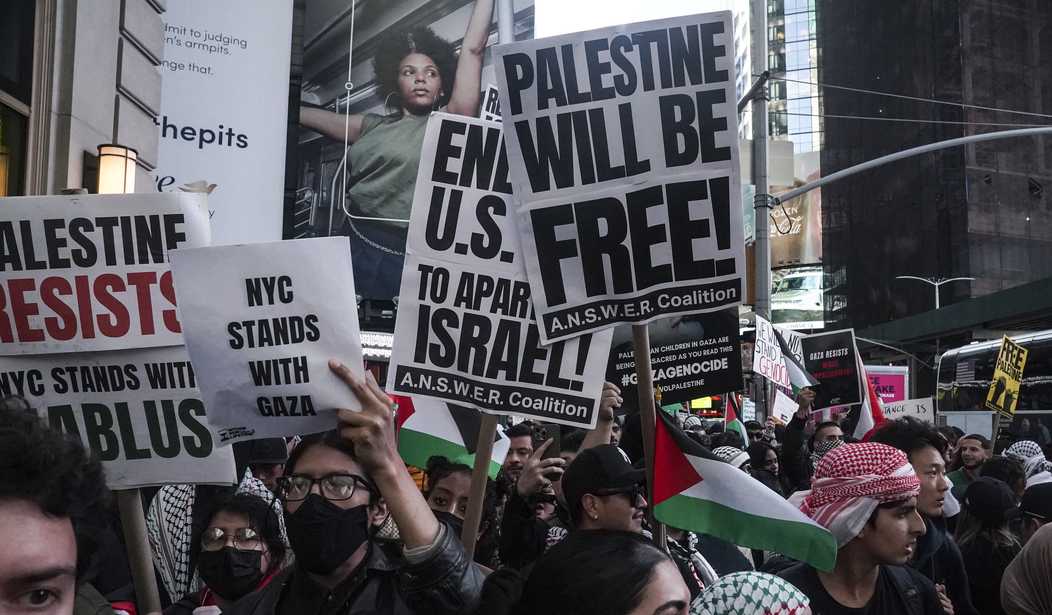The Biden White House intends to pursue a policy of recognizing a Palestinian state at the end of the Israel-Hamas War without the participation of the Israeli government. Along with bilateral recognition, the Biden White House contemplates urging other states to do the same and permitting that Palestinian state to join the United Nations. British Foreign Secretary David Cameron says the United Kingdom will do the same to bring about "irreversible progress to a two-state solution."
Israeli Prime Minister Benjamin Netanyahu stated on January 21, "I will not compromise on full Israeli security control over all the territory west of Jordan - and this is contrary to a Palestinian state." While the Palestinians, Hamas, and Islamic Jihad are driving away in that Cadillac El Dorado, the set of steak knives that will be offered to Netanyahu after this public repudiation will be "normalized" relations with Saudi Arabia.
- The Biden administration is linking possible normalization between Israel and Saudi Arabia to the creation of a pathway for the establishment of a Palestinian state as part of its post-war strategy. This initiative is based on the administration's efforts prior to Oct. 7 to negotiate a mega-deal with Saudi Arabia that included a peace agreement between the kingdom and Israel.
- Saudi officials have publicly and privately made clear since Oct. 7 that any potential normalization agreement with Israel would be conditioned on the creation of an "irrevocable" pathway towards a Palestinian state.
Allegedly, Secretary of State Antony Blinken is favoring a "demilitarized" state because that worked so well in Gaza.
In what has sort of become a metaphor for all of Joe Biden's foreign policy decisions, the Biden regime doesn't seem to know what its policy is. While Blinken's people were leaking that a policy rethinking was underway, the National Security Council was caught with its jaw hanging down.
- A White House National Security Council spokesperson said it "has been longstanding U.S. policy that any recognition of a Palestinian state must come through direct negotiations between the parties rather than through unilateral recognition at the UN. That policy has not changed."
- The State Department declined to comment.
There are three sticking points. First, the boundaries of this new terrorist empire have to be set. No one knows what that would look like. Second, the obvious impact of what will be an Iranian-controlled terror state bordering Israel that could have mutual defense treaties with other nations hostile to Israel and UN representation doesn't seem to have been considered. Third, everyone appears to be assuming away the high probability that Israel will refuse to accept this terror state.
If this happens, it effectively kills Trump's Abraham Accords by bringing Palestinian demands back to the center of Middle East geopolitics. It will be nearly impossible for any Arab nation to continue relations with Israel if Israel refuses to accept the strategy of rolling bilateral recognition agreements that the White House envisages.
Unless this is derailed, we have effectively abandoned our tacit alliance with Israel and handed a massive strategic victory to the country that will control the government in this new state.

